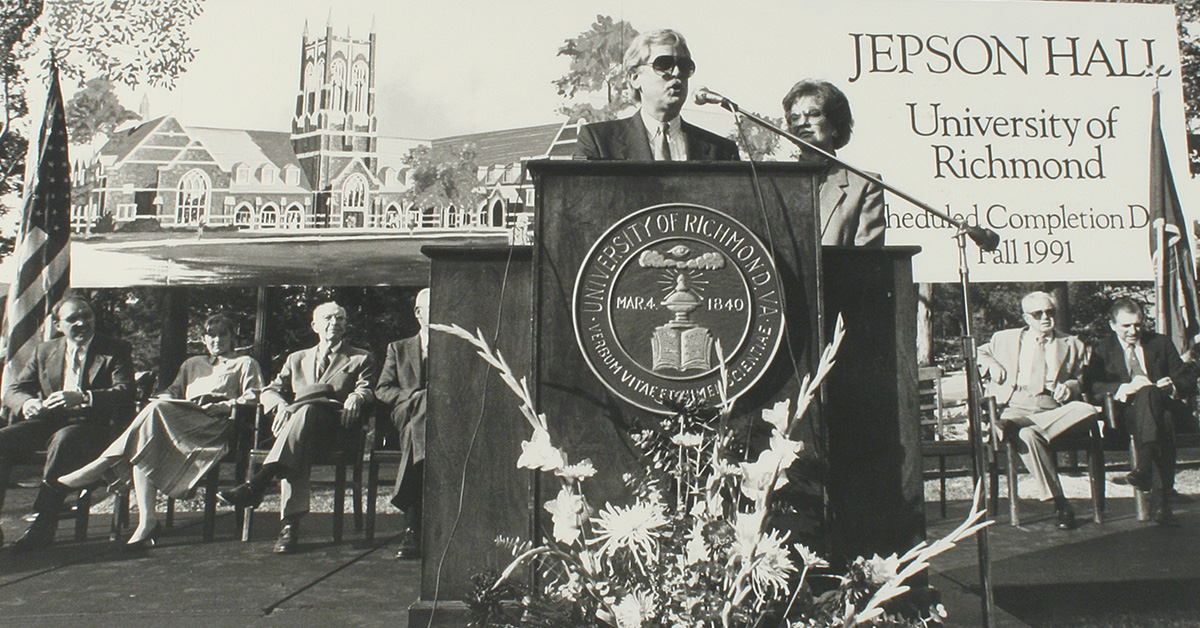
As the 30th anniversary of the groundbreaking associated with the Jepson School of Leadership Studies recently passed, I found myself speculating on the significance of the gift that founded us. Surely, some of these speculations are obvious: The generosity and vision of Robert S. Jepson Jr., B’64, GB’75, H’87, and Alice Andrews Jepson created the first undergraduate school devoted to the study of leadership, thereby permanently altering the landscape of higher education.
As many generous donors have made large gifts in higher education, however, it bears asking what made this one so significant and successful.
I begin first with its success. By many metrics, the Jepson School has exceeded expectations. To provide one example, applications to the School (students join the School in their sophomore year) have more than doubled in the last decade. Second, while our faculty publish at rates comparable with those at research-oriented universities, they also teach and inspire students with energy, creativity, and enthusiasm.
By establishing a School, as opposed to a program housed in an already-existing department, the Jepsons’ gift ensured that faculty dedicated to teaching and researching questions of leadership would always support the leadership studies major.
All too often new leadership programs at colleges struggle and wither on the vine because they must pull faculty in from their ordinary appointments to service the second–and often in their view, less important–area. Through my service as an outside evaluator to many collegiate leadership programs, I see many institutions facing this perennial problem. While the Jepson School overcame many challenges early on, borrowing faculty from primary appointments was not one the School faced.
Second, placing the School in a separate educational unit where faculty bring their disciplinary specializations to the multi-disciplinary whole was nothing short of brilliant. As a strategic move, this prevented the often-inevitable money grab associated with a large gift–when groups or disciplines try to use the resources for their own purposes rather than those of the donor. None of that happened at the Jepson School. Instead, the administration and faculty came together with a common aim of furthering scholarship and teaching as it relates to questions of leadership.
This brings us to the significance of the gift. The School’s unifying theme, the study of leadership, is deeply significant and still only partially understood. It has never been more imperative that we study and find answers to the question of how best to ensure effective, ethical leadership in all walks of life.
It is a joy to work at a place where something momentous continues to develop and unfurl.
Photograph: Robert S. Jepson Jr. and Alice Andrews Jepson at the Jepson Hall groundbreaking ceremony, Oct. 5, 1989.
